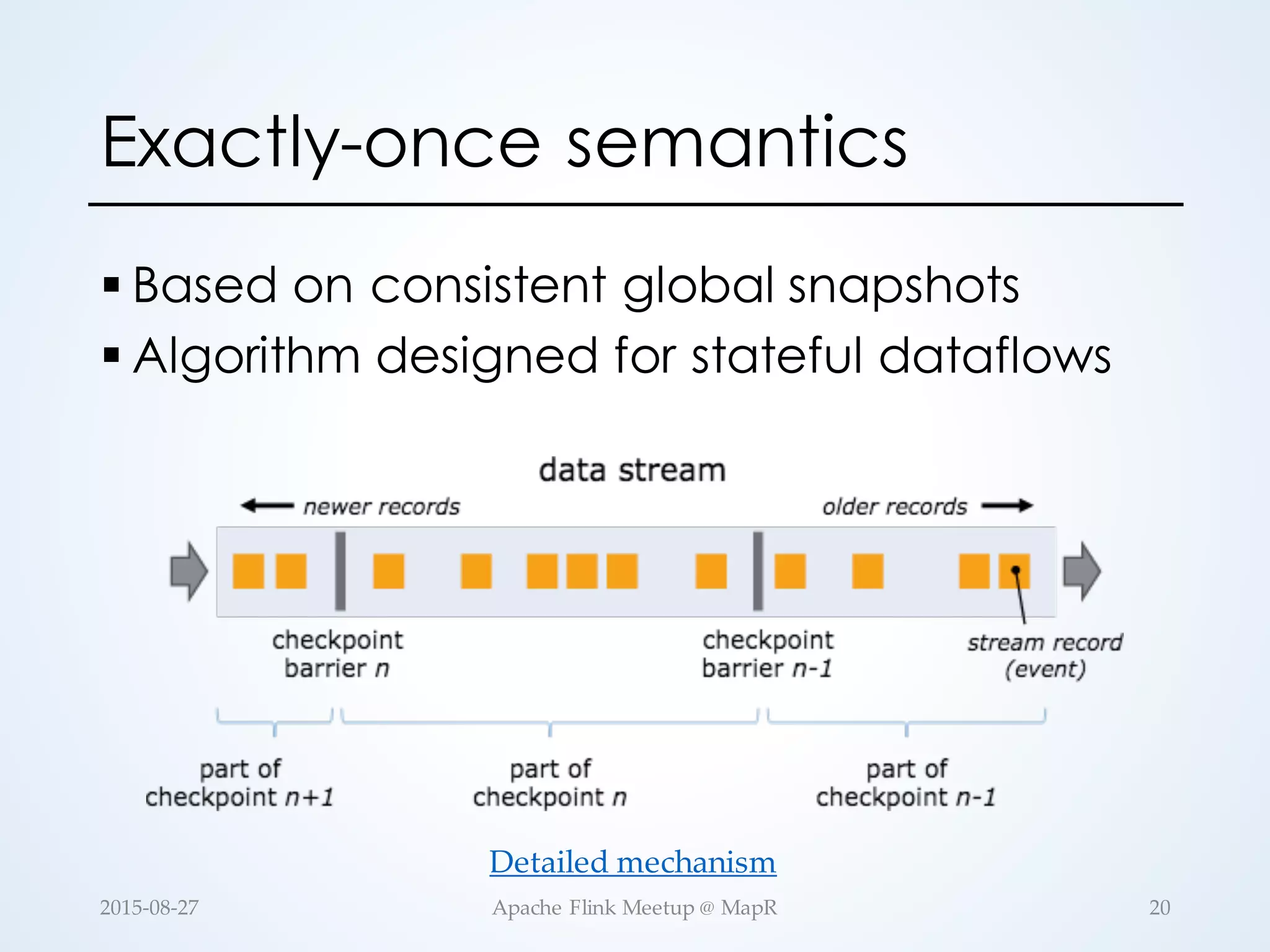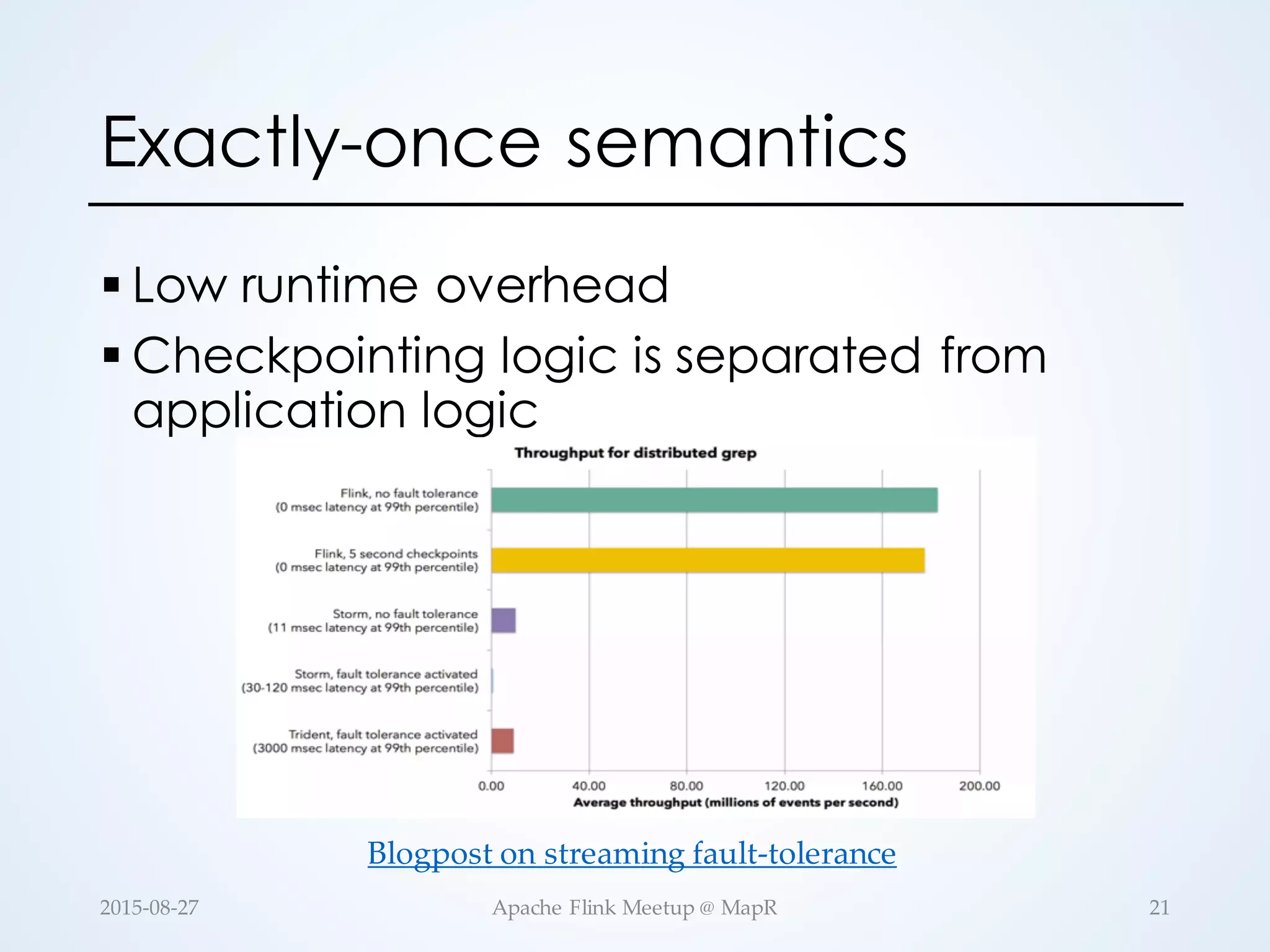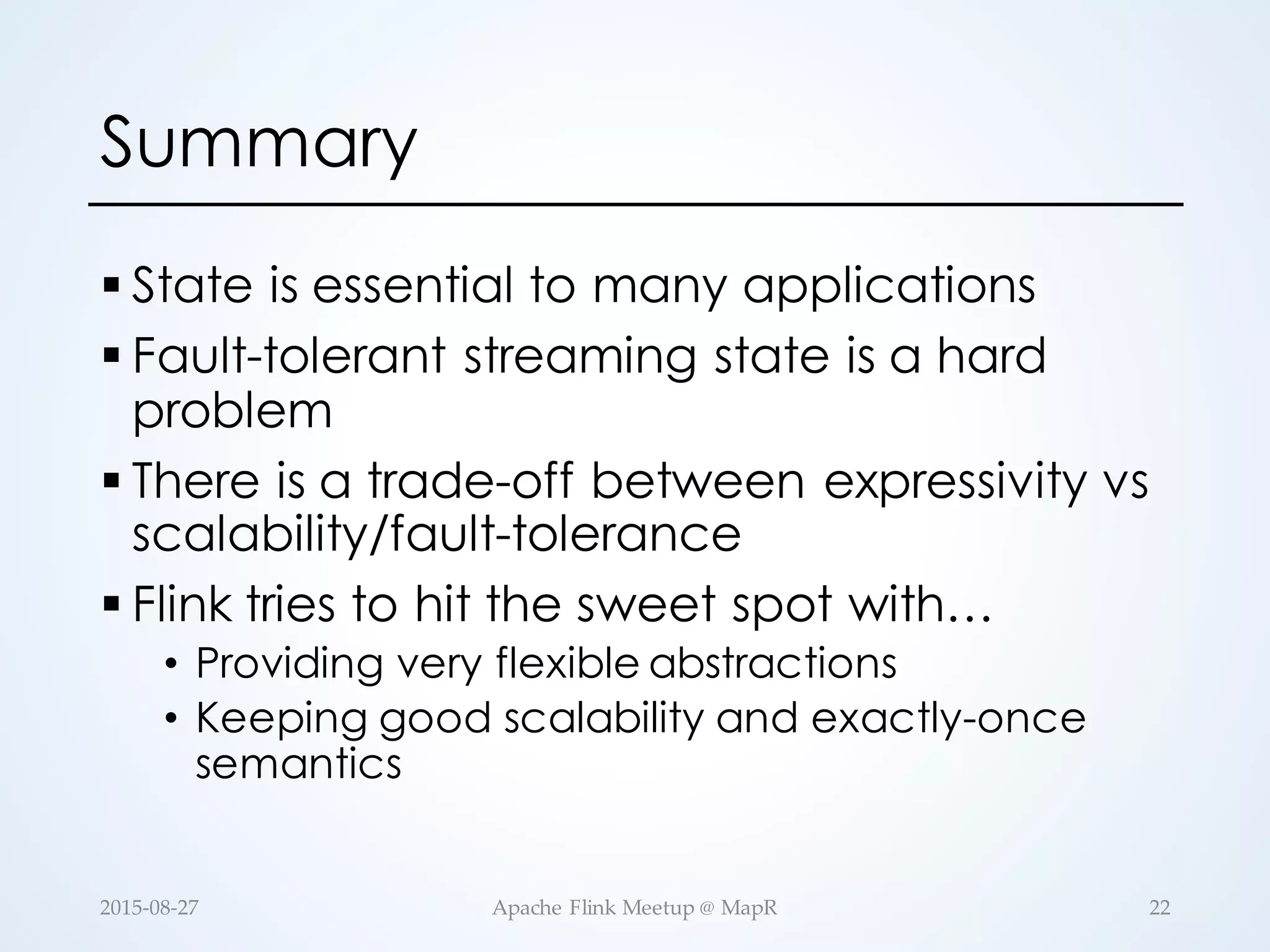The document discusses stateful distributed stream processing, highlighting its definition, challenges, and the implementation of state in various open-source systems like Apache Flink. Key concepts include stateful processing examples such as window aggregations and machine learning, as well as the importance of scalability and fault-tolerance. Ultimately, Flink aims to balance expressivity, scalability, and exactly-once semantics in streaming applications.
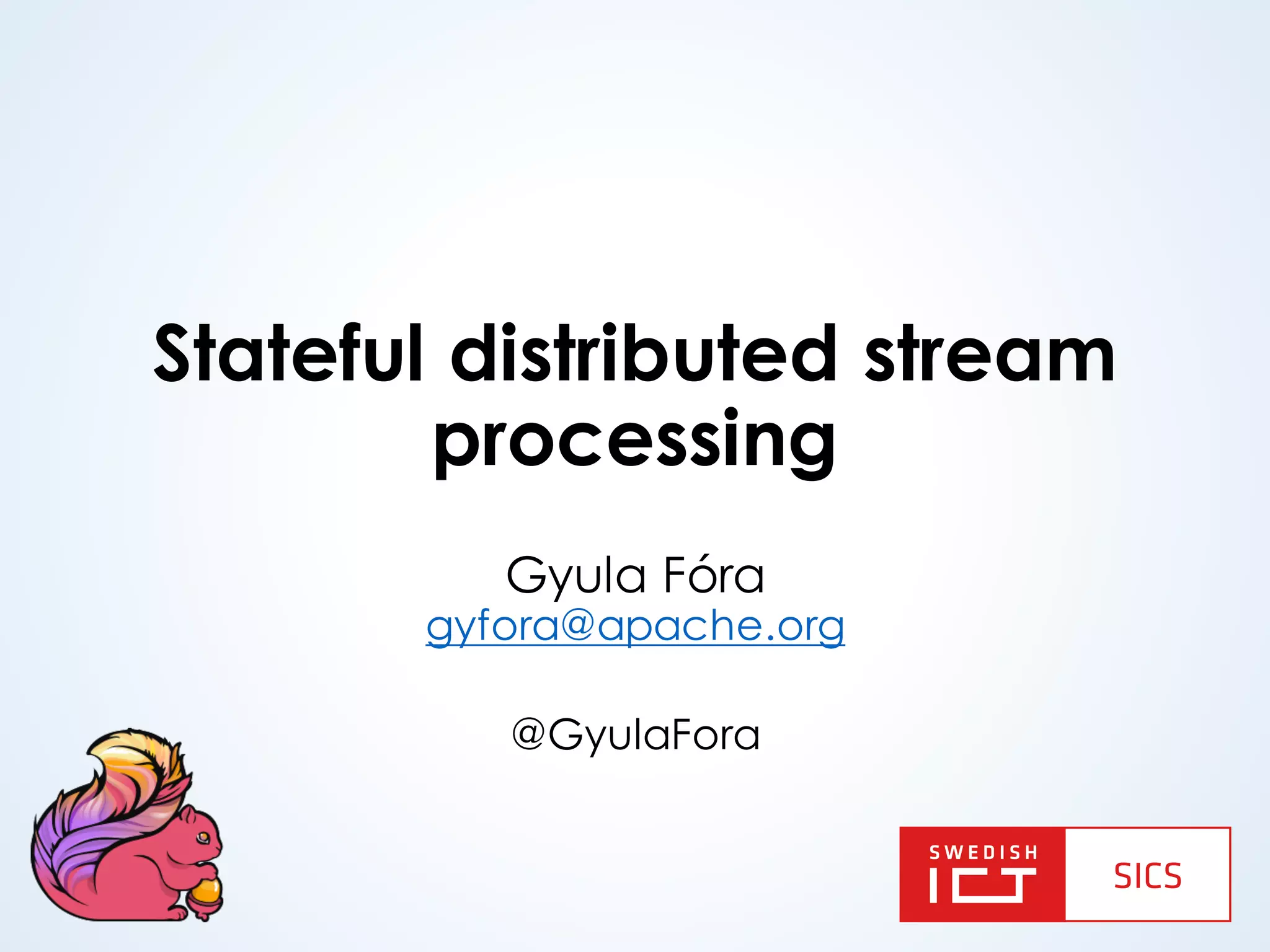
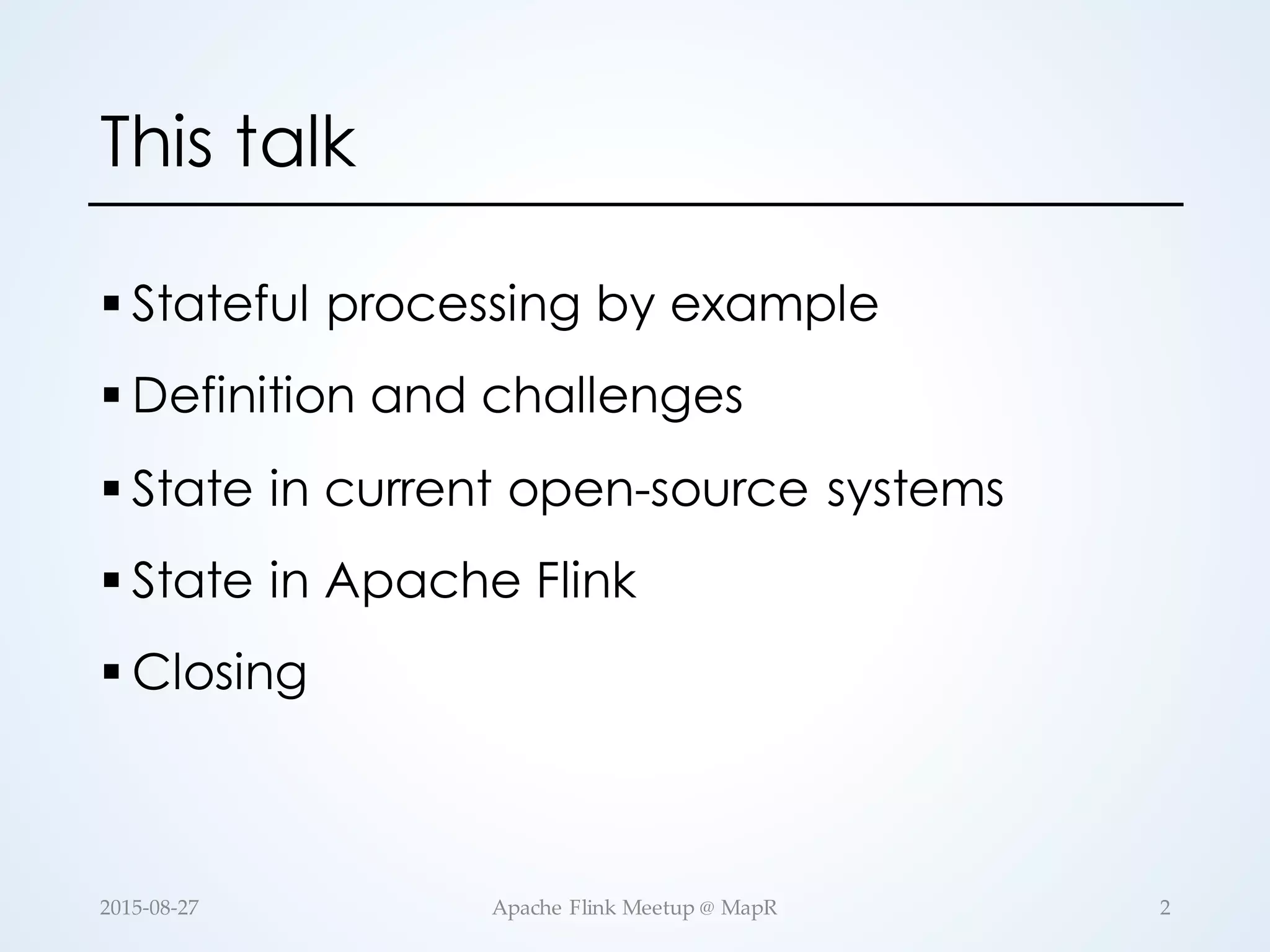
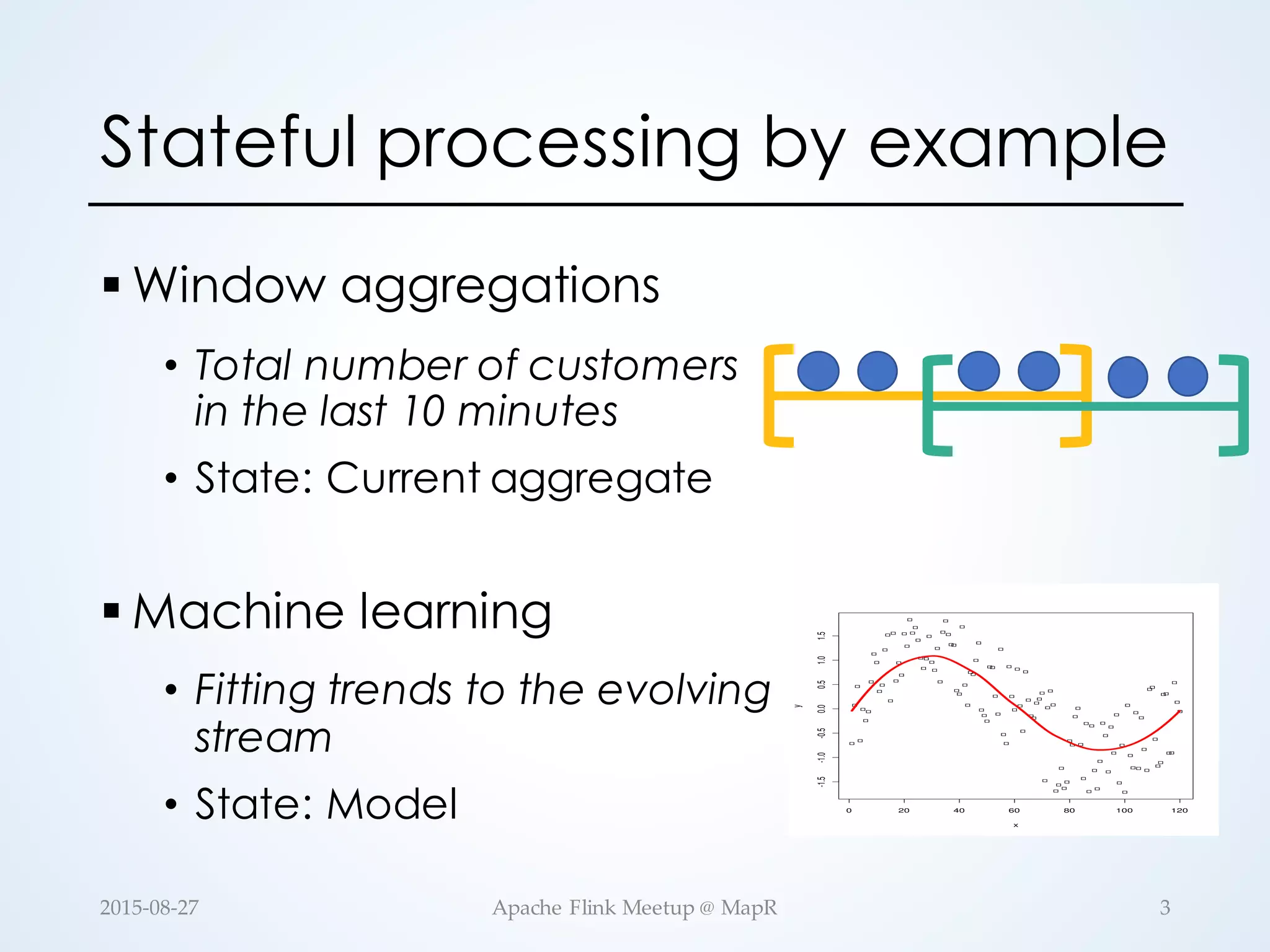
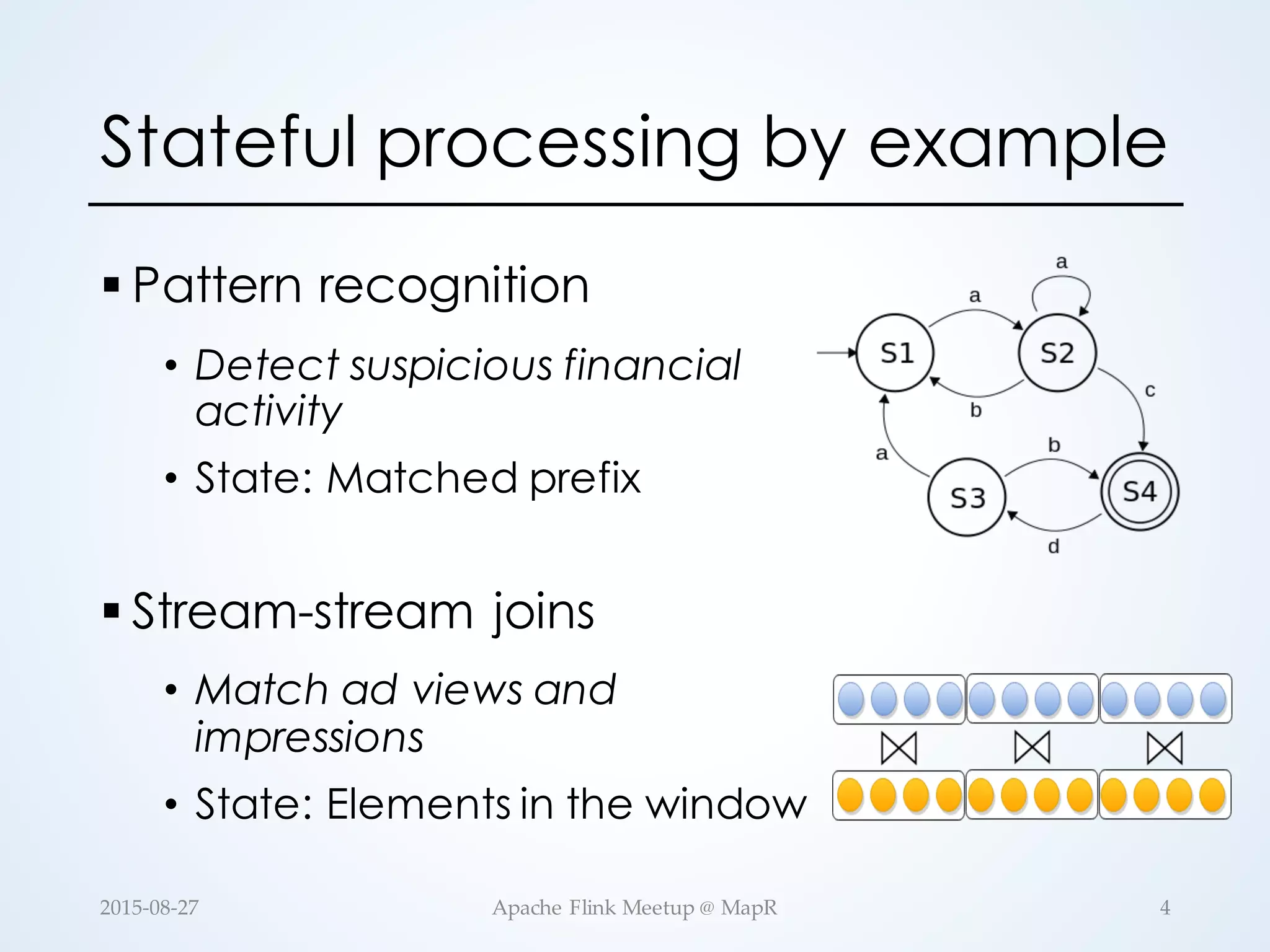
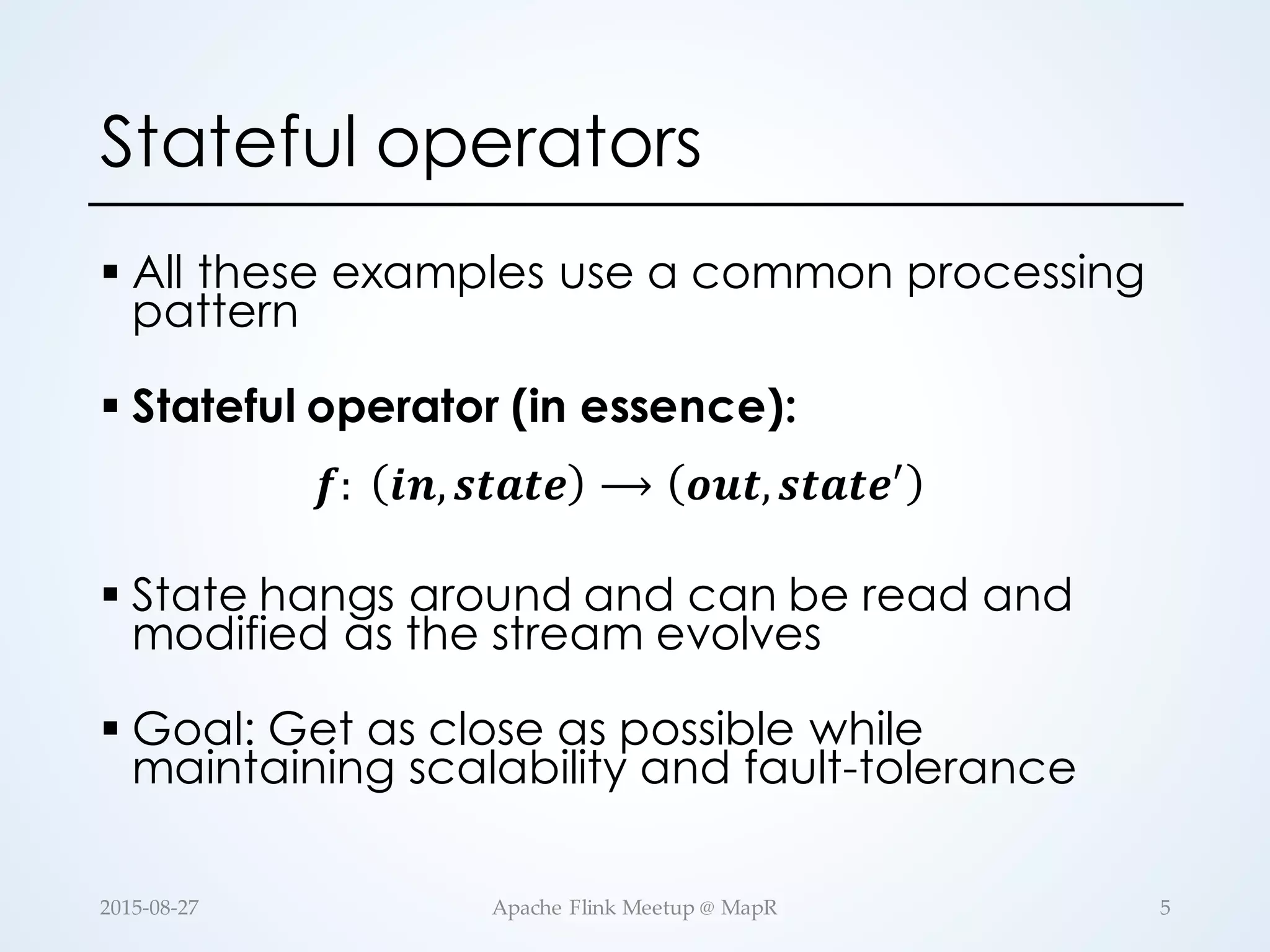
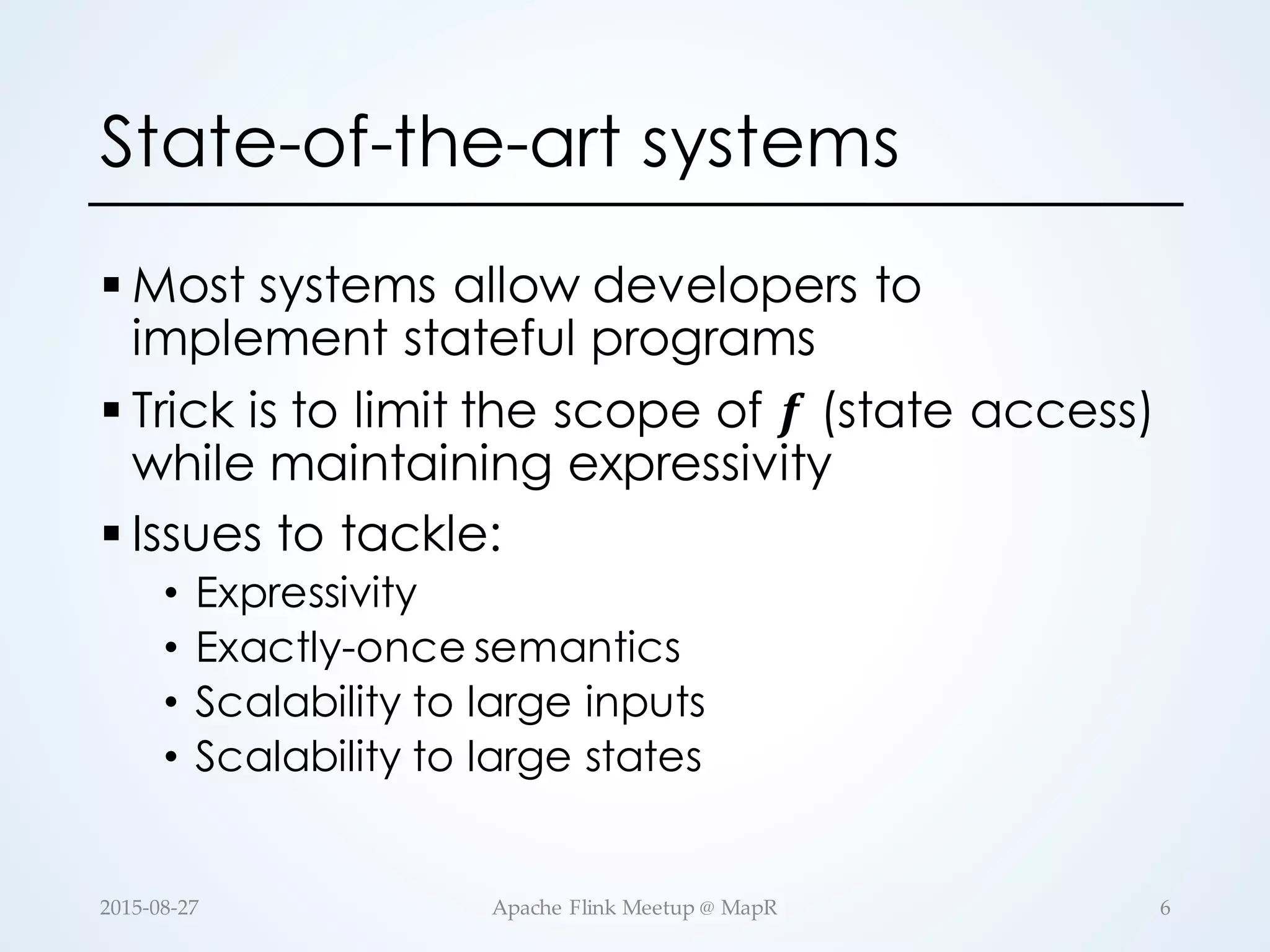
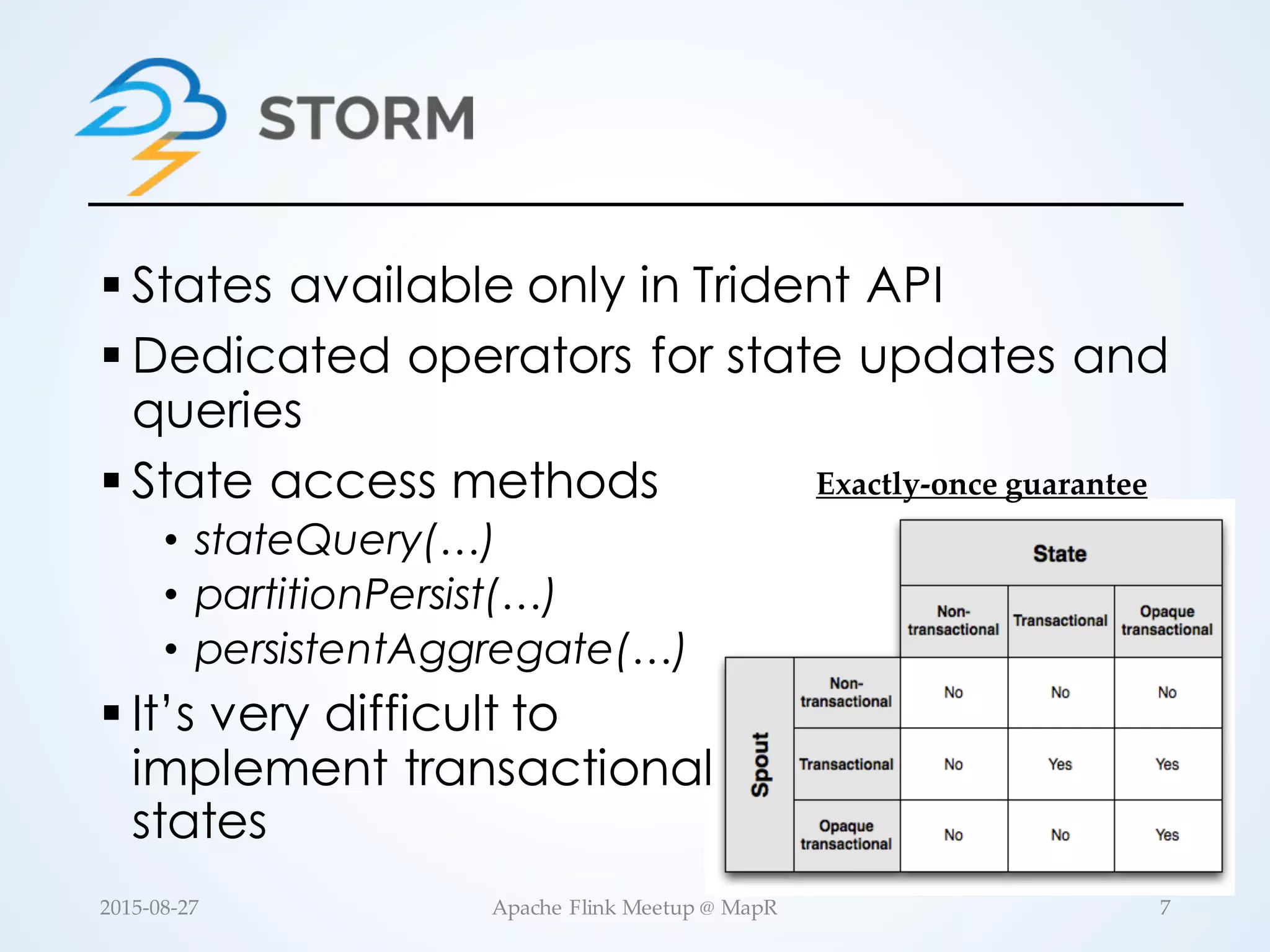
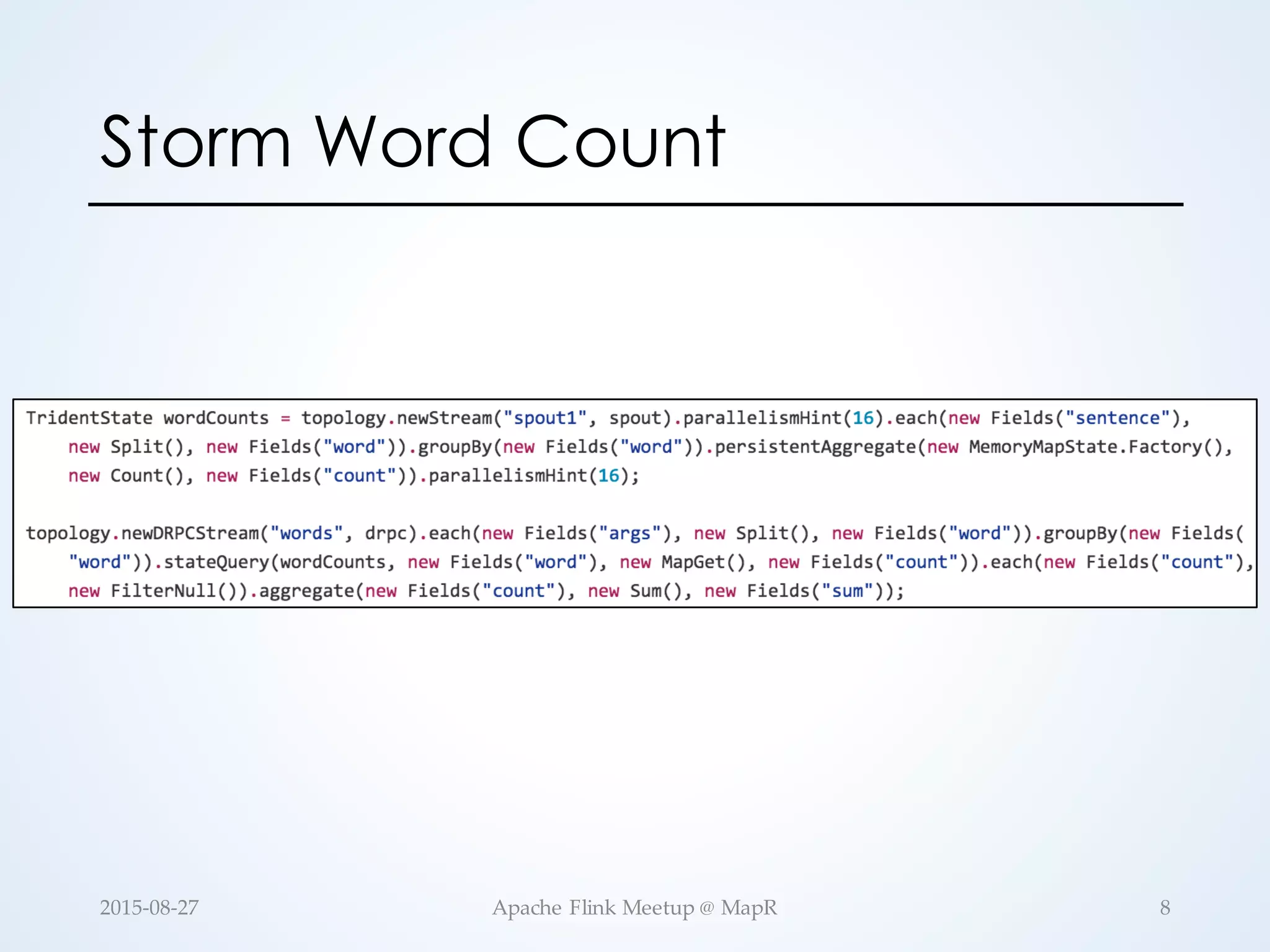
![§ Stateless runtime by design • No continuous operators • UDFs are assumed to be stateless § State can be generated as a stream of RDDs: updateStateByKey(…) 𝒇: 𝑺𝒆𝒒[𝒊𝒏 𝒌], 𝒔𝒕𝒂𝒕𝒆 𝒌 ⟶ 𝒔𝒕𝒂𝒕𝒆. 𝒌 § 𝒇 is scoped to a specific key § Exactly-once semantics 9Apache Flink Meetup @ MapR2015-‐‑08-‐‑27](https://image.slidesharecdn.com/statefulstreamingmaprfinal-150828030935-lva1-app6892/75/Stateful-Distributed-Stream-Processing-9-2048.jpg)
, true, initialRDD) val updateFunc = (values: Seq[Int], state: Option[Int]) => { val currentCount = values.sum val previousCount = state.getOrElse(0) Some(currentCount + previousCount) } Spark Streaming Word Count 10Apache Flink Meetup @ MapR2015-‐‑08-‐‑27](https://image.slidesharecdn.com/statefulstreamingmaprfinal-150828030935-lva1-app6892/75/Stateful-Distributed-Stream-Processing-10-2048.jpg)
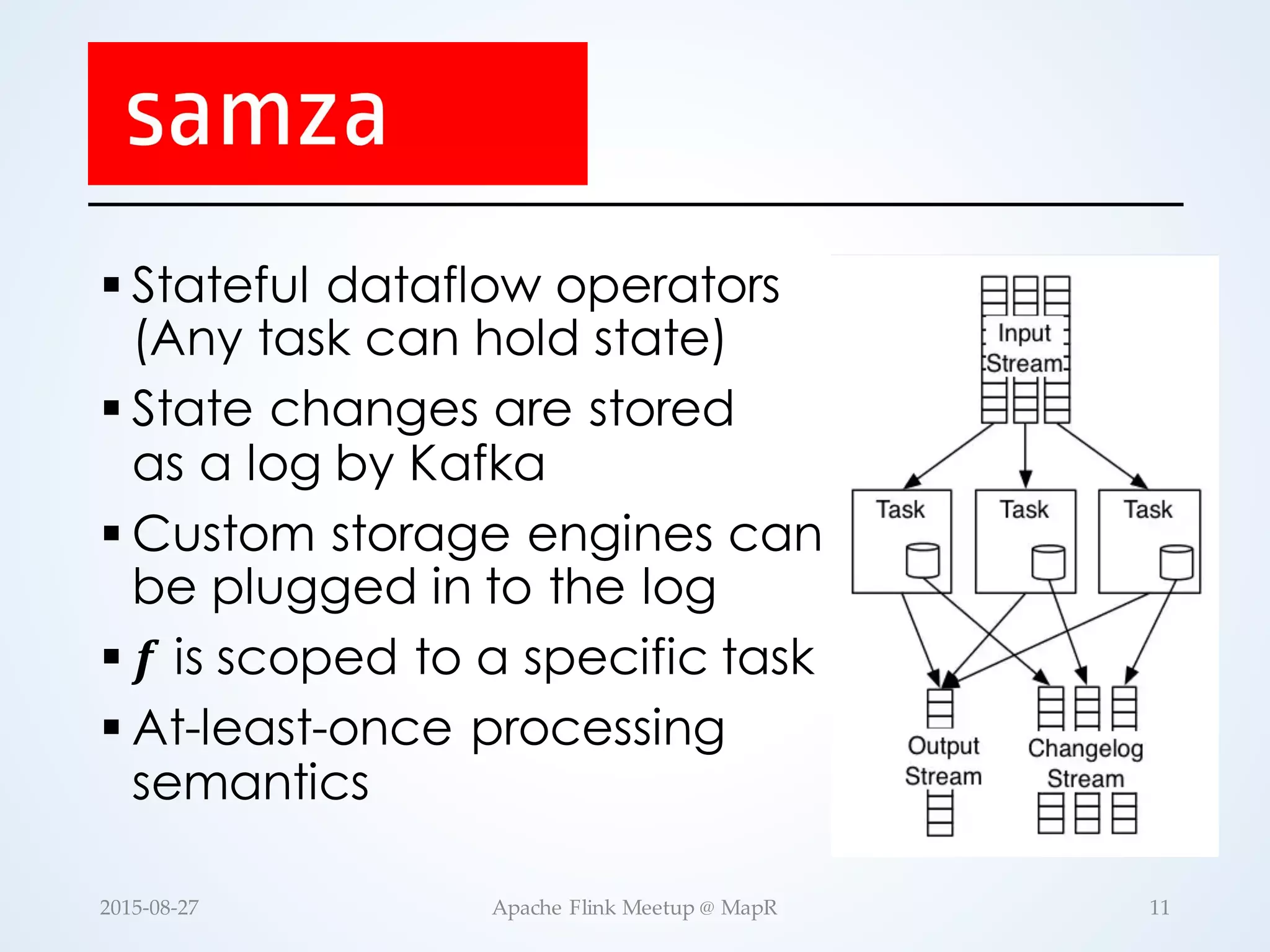
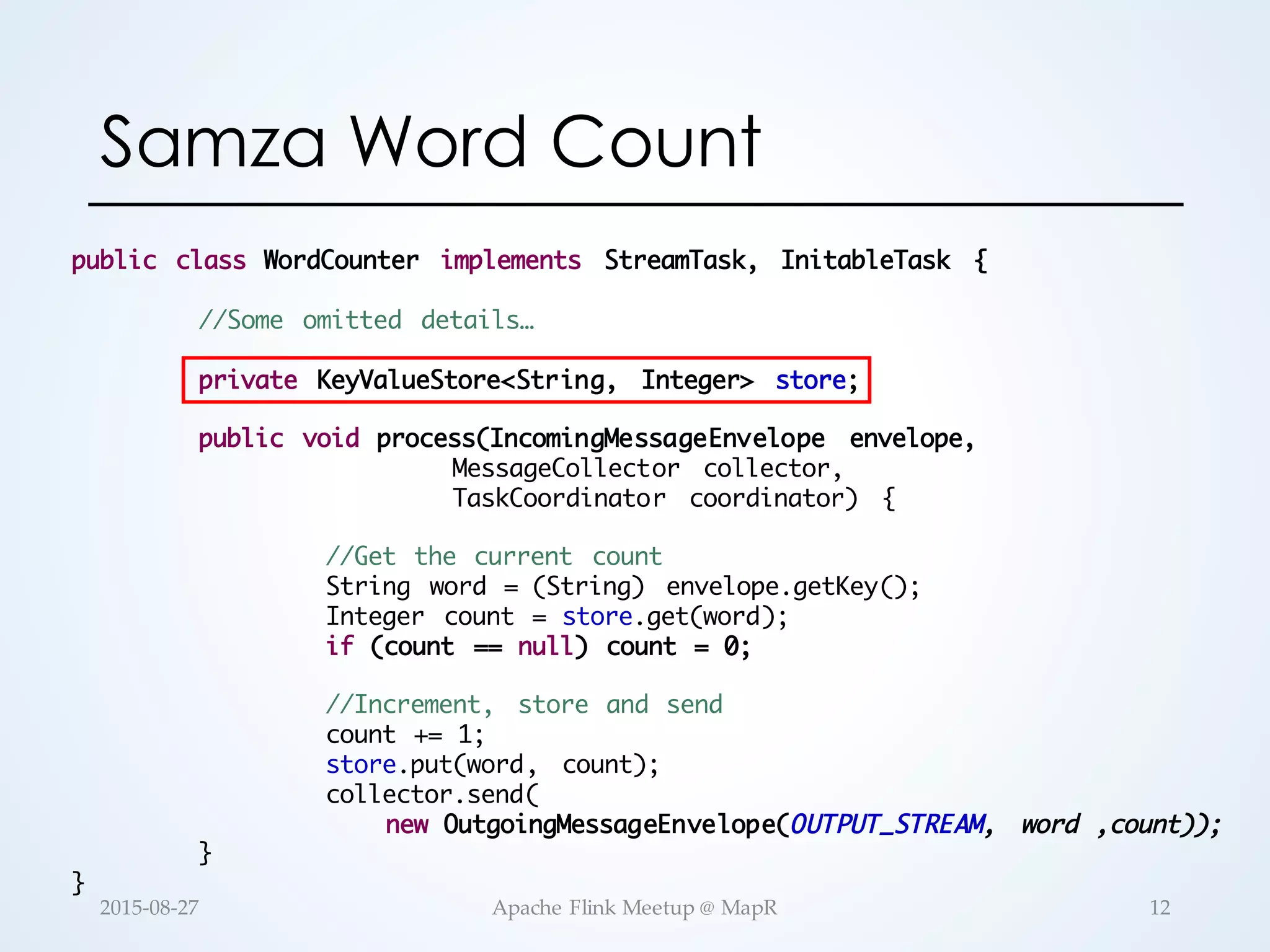
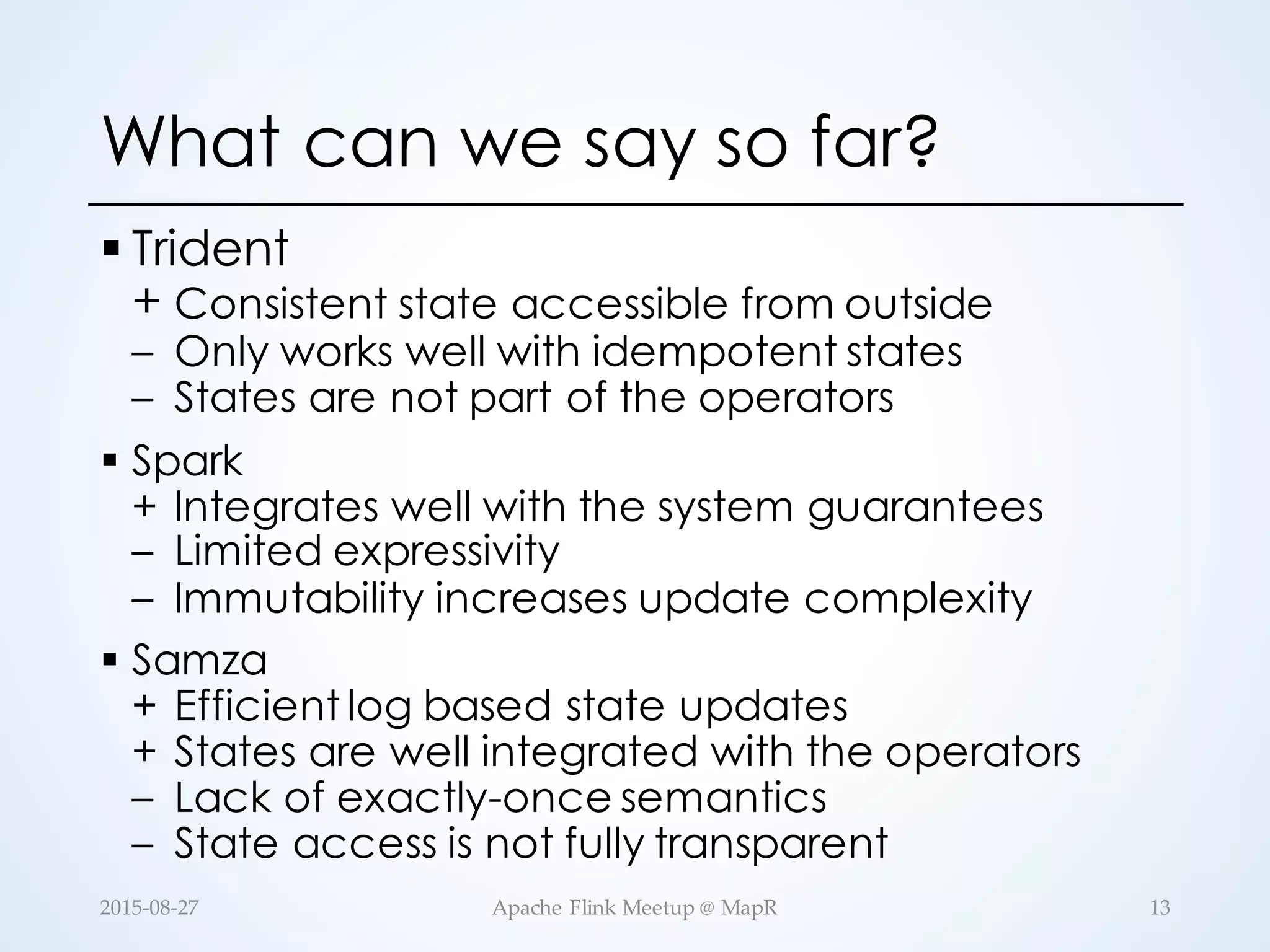
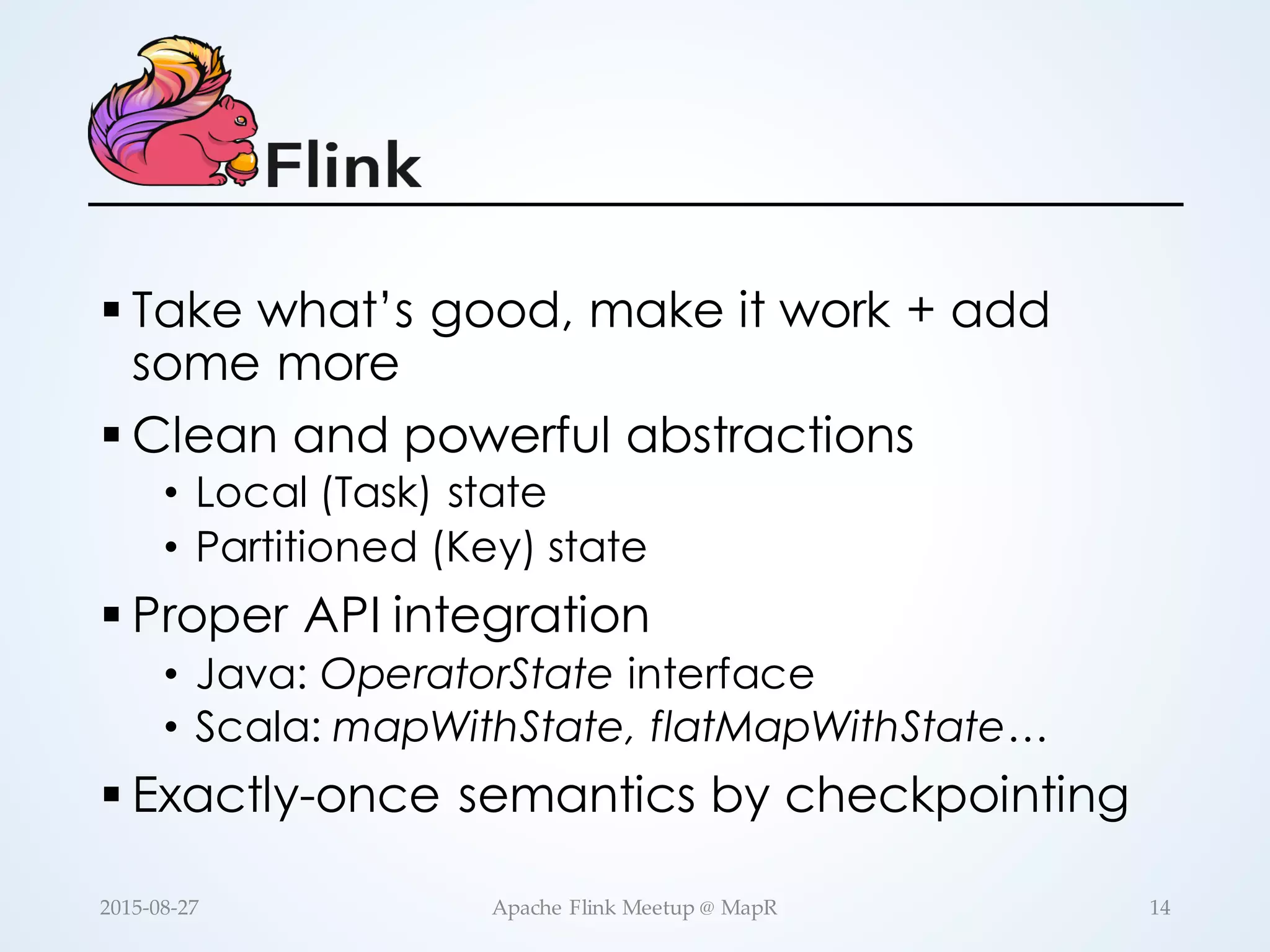
![Flink Word Count words.keyBy(x => x).mapWithState { (word, count: Option[Int]) => { val newCount = count.getOrElse(0) + 1 val output = (word, newCount) (output, Some(newCount)) } } 15Apache Flink Meetup @ MapR2015-‐‑08-‐‑27](https://image.slidesharecdn.com/statefulstreamingmaprfinal-150828030935-lva1-app6892/75/Stateful-Distributed-Stream-Processing-15-2048.jpg)
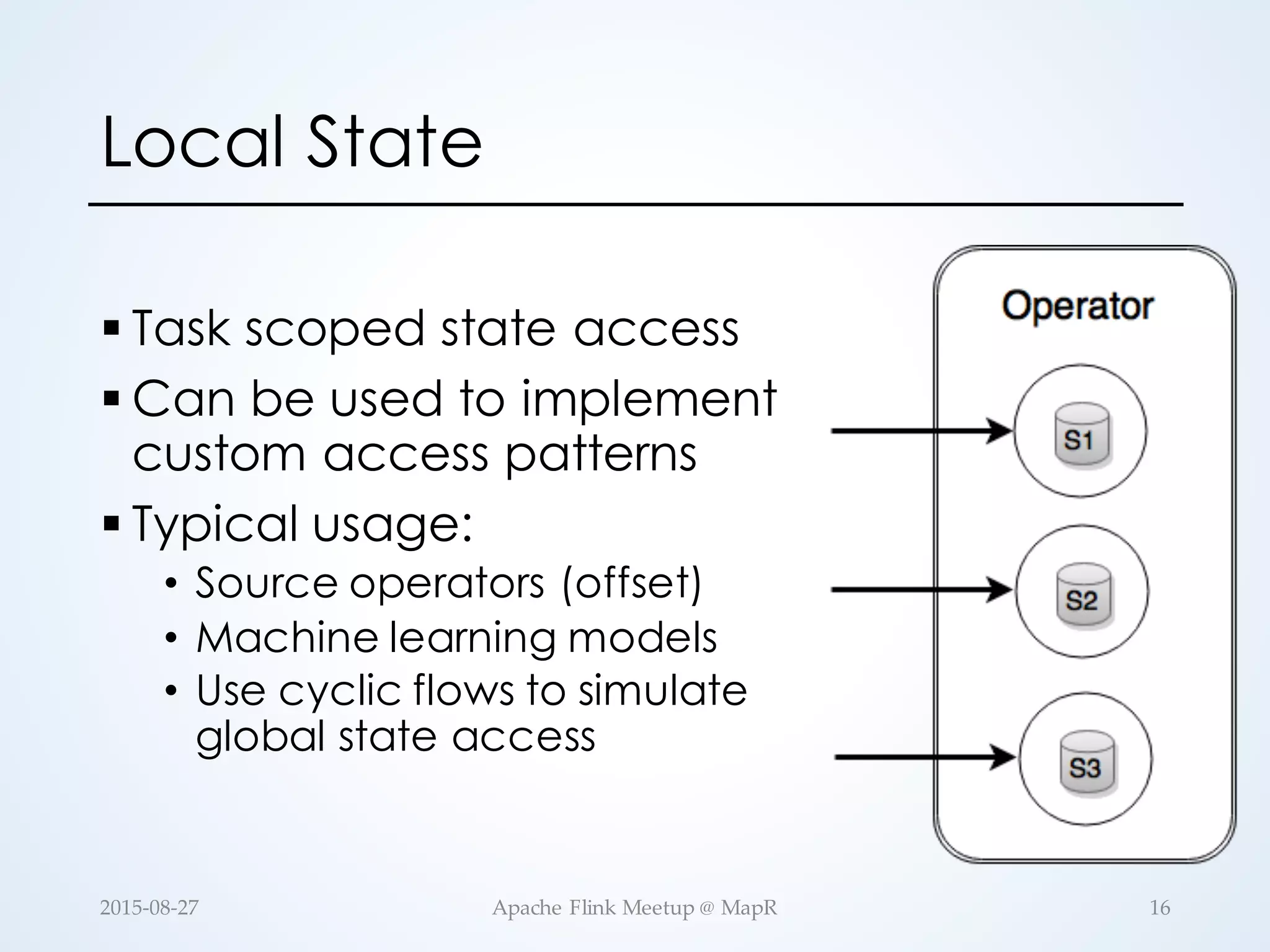
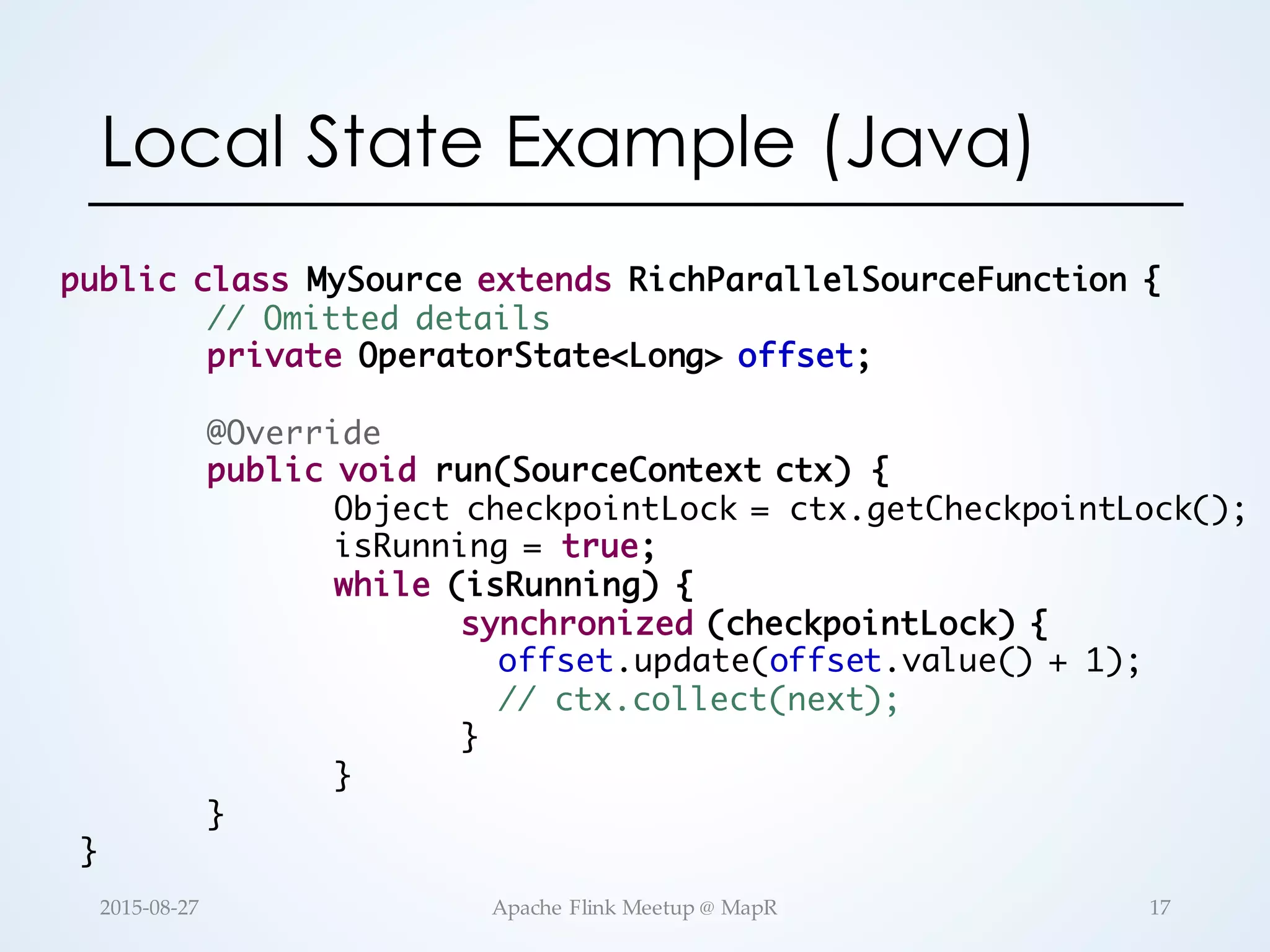
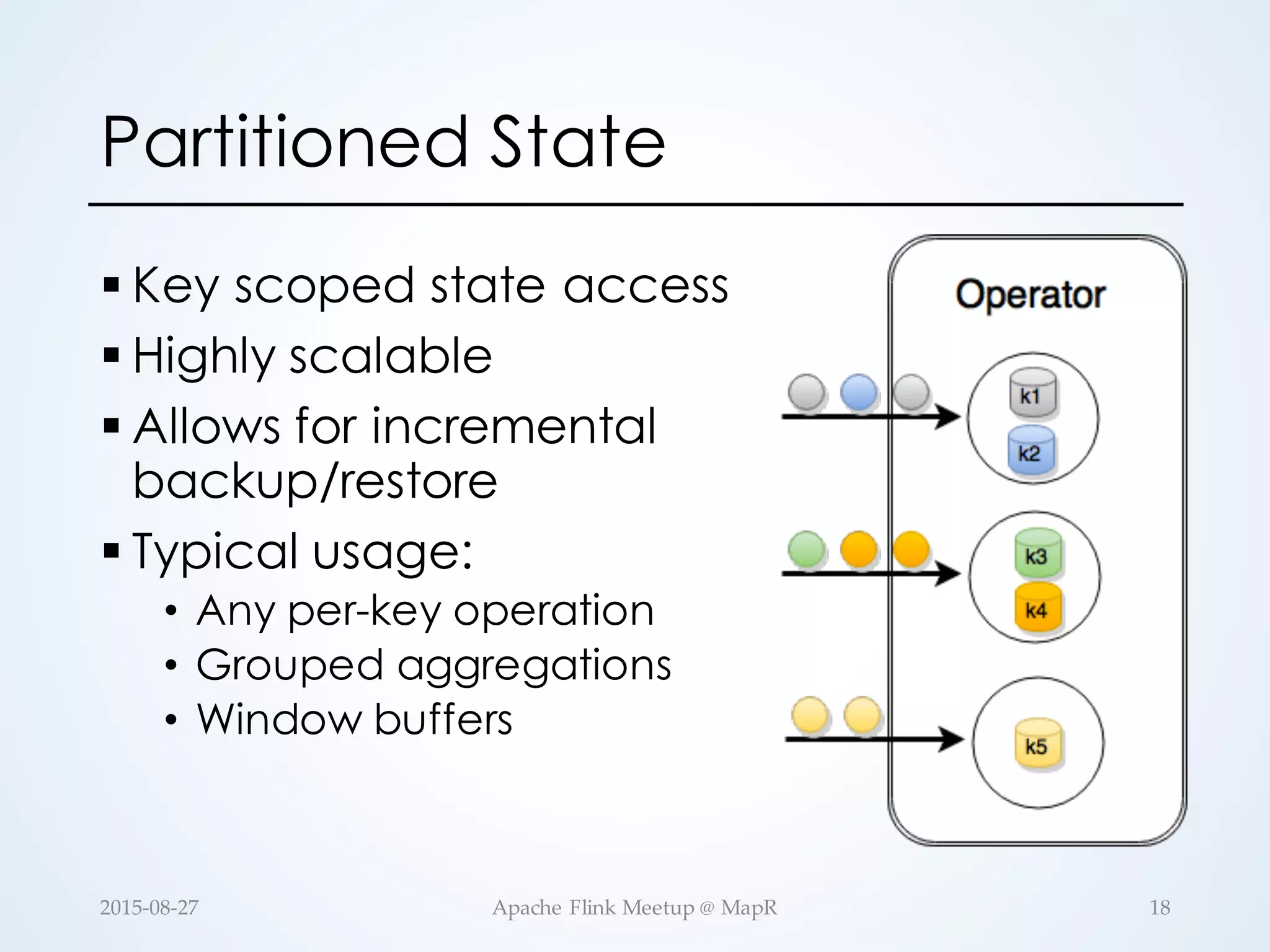
![Partitioned State Example (Scala) // Compute the current average of each city's temperature temps.keyBy("city").mapWithState { (in: Temp, state: Option[(Double, Long)]) => { val current = state.getOrElse((0.0, 0L)) val updated = (current._1 + in.temp, current._2 + 1) val avg = Temp(in.city, updated._1 / updated._2) (avg, Some(updated)) } } case class Temp(city: String, temp: Double) 19Apache Flink Meetup @ MapR2015-‐‑08-‐‑27](https://image.slidesharecdn.com/statefulstreamingmaprfinal-150828030935-lva1-app6892/75/Stateful-Distributed-Stream-Processing-19-2048.jpg)
